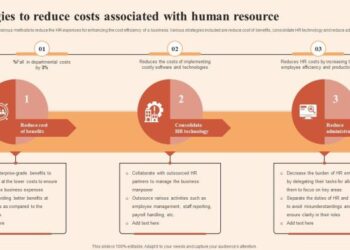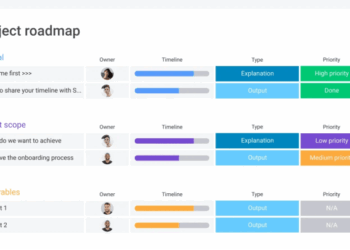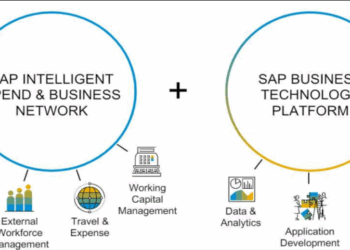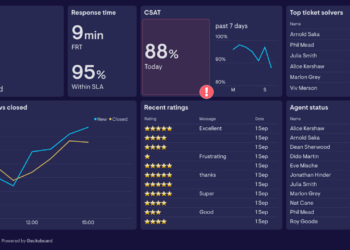Delving into How AI is Revolutionizing Supply Chain Management for Online Retailers, this introduction immerses readers in a unique and compelling narrative. AI is reshaping the way online retailers manage their supply chains, bringing about efficiency and innovation that were previously unimaginable.
From demand forecasting to inventory management, AI is at the forefront of transforming the industry.
Introduction to AI in Supply Chain Management
Artificial Intelligence (AI) plays a crucial role in revolutionizing supply chain management for online retailers by offering advanced solutions to optimize operations. By leveraging AI technologies, online retailers can streamline processes, enhance efficiency, and improve overall performance in their supply chain operations.
Role of AI in Optimizing Operations
AI enables online retailers to forecast demand accurately, manage inventory effectively, and optimize transportation and logistics processes. Through machine learning algorithms, AI can analyze vast amounts of data to make data-driven decisions in real-time, leading to improved inventory management, reduced lead times, and enhanced customer satisfaction.
Benefits of Integrating AI into Supply Chain Processes
- Enhanced Demand Forecasting: AI algorithms can analyze historical data, market trends, and external factors to predict demand accurately, minimizing stockouts and overstock situations.
- Improved Inventory Management: AI can optimize inventory levels by monitoring sales patterns, supplier lead times, and demand fluctuations, ensuring optimal stock levels at all times.
- Enhanced Efficiency in Logistics: AI-powered route optimization and scheduling algorithms can streamline transportation processes, reduce fuel costs, and minimize delivery times, leading to a more efficient supply chain network.
- Enhanced Customer Experience: By ensuring product availability, faster delivery times, and personalized recommendations, AI can enhance the overall customer experience, leading to increased customer loyalty and retention.
AI Applications in Demand Forecasting
AI algorithms play a crucial role in enhancing demand forecasting accuracy for online retailers. By analyzing vast amounts of data and identifying patterns, AI tools can provide more precise predictions, ultimately helping businesses make informed decisions regarding inventory management.
Examples of AI Tools for Demand Prediction
- One popular AI tool used for demand prediction in online retail is machine learning algorithms, such as neural networks and decision trees. These algorithms can analyze historical sales data, market trends, and other factors to forecast future demand accurately.
- Another example is predictive analytics software, which utilizes AI to predict customer behavior and buying patterns. By understanding customer preferences and trends, retailers can anticipate demand fluctuations and adjust their inventory levels accordingly.
Impact of Improved Demand Forecasting on Inventory Management
- Accurate demand forecasting leads to optimized inventory levels, reducing the risk of stockouts or overstock situations. This, in turn, helps online retailers minimize storage costs and maximize operational efficiency.
- By leveraging AI for demand forecasting, businesses can also enhance customer satisfaction by ensuring product availability and timely delivery. Meeting customer demand effectively can lead to increased sales and brand loyalty.
AI-Driven Inventory Management
AI plays a crucial role in revolutionizing inventory management for online retailers by automating various processes and optimizing stock levels to meet customer demand efficiently.
Automated Inventory Tracking and Replenishment
- AI algorithms can analyze real-time data to track inventory levels accurately and predict when items need to be replenished.
- By automating this process, online retailers can avoid stockouts and ensure that popular products are always available for customers.
- AI-driven systems can also optimize the storage of inventory in warehouses, maximizing space utilization and streamlining logistics operations.
Dynamic Pricing and Inventory Optimization
- AI enables online retailers to implement dynamic pricing strategies based on factors such as demand, competition, and market trends.
- By analyzing vast amounts of data, AI algorithms can adjust prices in real-time to maximize profits and increase sales.
- Inventory optimization through AI involves forecasting demand accurately and ensuring the right amount of stock is available at any given time.
Reduction of Overstock and Stockouts
- AI helps online retailers minimize overstock by providing insights into customer preferences and predicting demand patterns.
- By preventing overstock, retailers can reduce storage costs and markdowns on excess inventory, improving overall profitability.
- AI also mitigates stockouts by optimizing inventory levels and replenishment processes, ensuring that customers can always find the products they want to purchase.
AI for Route Optimization and Logistics
AI plays a crucial role in optimizing delivery routes and enhancing logistics processes for online retailers. By leveraging advanced algorithms and real-time data analysis, AI can significantly improve efficiency and accuracy in last-mile delivery operations.
Route Optimization with AI
- AI algorithms analyze various factors such as traffic patterns, delivery locations, and vehicle capacity to determine the most efficient routes for delivery drivers
.
- By considering multiple variables simultaneously, AI can minimize delivery times, reduce fuel consumption, and optimize resource allocation.
- Real-time updates and adjustments based on changing conditions ensure that routes remain optimized throughout the delivery process.
Role of AI in Logistics Management
- AI enables real-time monitoring of delivery fleets, providing insights into vehicle locations, delivery statuses, and potential delays.
- By integrating AI-powered tracking systems, retailers can proactively address issues, reroute deliveries, and improve overall customer satisfaction.
- Predictive analytics help identify potential bottlenecks in the supply chain, allowing for proactive measures to prevent disruptions and optimize logistics operations.
AI Applications in Last-Mile Delivery Efficiency
- AI-powered route optimization tools can help delivery drivers navigate complex urban environments, avoid traffic congestion, and optimize delivery sequences.
- Machine learning algorithms analyze historical delivery data to predict demand patterns, enabling retailers to allocate resources effectively and minimize delivery lead times.
- Automated delivery scheduling and dispatching systems streamline operations, reduce manual errors, and ensure timely deliveries to customers.
AI-Powered Customer Insights and Personalization
AI plays a crucial role in analyzing vast amounts of customer data to enhance personalization and improve the overall customer experience. By leveraging AI technologies, online retailers can gain valuable insights into customer preferences, behaviors, and purchasing patterns, allowing them to tailor their offerings to meet individual needs.
AI for Targeted Marketing and Product Recommendations
Using AI algorithms, online retailers can segment customers based on their preferences, past purchases, browsing history, and demographic information. This segmentation enables retailers to create targeted marketing campaigns that are personalized to each customer segment. AI can also analyze data in real-time to provide personalized product recommendations to customers, increasing the likelihood of conversion and fostering customer loyalty.
- AI-powered targeted marketing campaigns increase the relevance of promotional offers and advertisements, leading to higher engagement and conversion rates.
- Personalized product recommendations based on AI analysis of customer data can significantly boost cross-selling and upselling opportunities.
- AI-driven targeted marketing and product recommendations contribute to improved customer satisfaction and retention rates.
Impact of AI-Driven Customer Insights on Supply Chain Decision-Making
AI-generated customer insights provide valuable information that can influence supply chain decision-making processes. By understanding customer preferences and behaviors, online retailers can optimize inventory management, demand forecasting, and logistics operations to meet customer expectations effectively.
AI-powered customer insights enable online retailers to align their supply chain strategies with customer demand, reducing stockouts, minimizing excess inventory, and enhancing overall operational efficiency.
AI for Risk Management and Resilience
AI plays a crucial role in identifying and mitigating supply chain risks for online retailers. By leveraging advanced algorithms and data analytics, AI helps in creating resilient supply chains that can adapt to unforeseen disruptions and challenges. Let's delve deeper into how AI is transforming risk management in the online retail sector.
AI Tools for Supply Chain Risk Management
AI tools are increasingly being utilized by online retailers to enhance their supply chain risk management strategies. These tools help in predicting and mitigating potential risks, ensuring smoother operations and improved customer satisfaction. Below are some examples of AI tools used for supply chain risk management in the online retail sector:
- Predictive Analytics: AI-powered predictive analytics tools analyze historical data to forecast potential supply chain disruptions, enabling retailers to take proactive measures to mitigate risks.
- Supply Chain Visibility Platforms: AI-driven supply chain visibility platforms provide real-time insights into the entire supply chain network, helping retailers identify bottlenecks and vulnerabilities that could impact operations.
- Risk Assessment Software: AI-based risk assessment software evaluates various risk factors and their potential impact on the supply chain, allowing retailers to prioritize risk mitigation efforts effectively.
- Intelligent Automation: AI-driven intelligent automation solutions streamline supply chain processes, reducing the likelihood of errors and delays that could lead to disruptions.
Conclusive Thoughts
In conclusion, the impact of AI on supply chain management for online retailers is profound and far-reaching. The integration of AI technologies has revolutionized the industry, leading to streamlined operations, improved customer experiences, and increased profitability. As we look to the future, it's clear that AI will continue to play a vital role in shaping the supply chain landscape for online retailers.
Answers to Common Questions
How does AI impact inventory management for online retailers?
AI automates inventory tracking, replenishment, and dynamic pricing, reducing overstock and stockouts.
What are some examples of AI applications in last-mile delivery efficiency?
AI algorithms optimize delivery routes, enhance real-time logistics management, and improve tracking for online orders.
How does AI analyze customer data to improve personalization?
AI tools analyze customer data for targeted marketing, personalized product recommendations, and enhanced customer insights.









